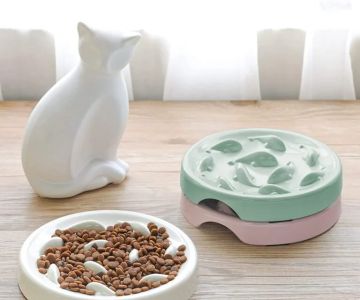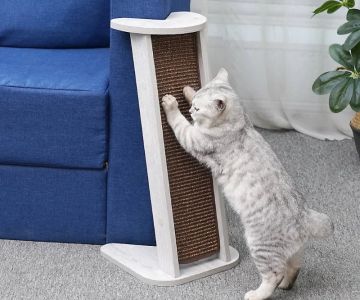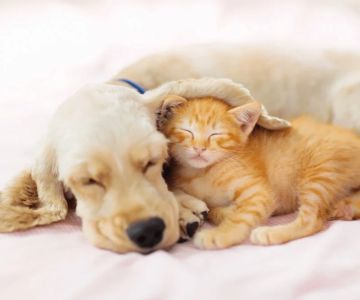
Understanding Kitten Food Allergies: Chicken vs. Fish
- What are Kitten Food Allergies?
- Common Allergens in Kitten Food
- Chicken vs. Fish in Kitten Diets
- Signs of Food Allergies in Kittens
- How to Manage Kitten Food Allergies
Understanding kitten food allergies is essential for every pet parent, especially when it comes to choosing the right food for your furry friend. Kitten food allergies can be triggered by a variety of ingredients, and among the most common are chicken and fish. This article will explore these two proteins, their role in kitten diets, and how they might affect your pet's health. Whether you're choosing the best food for your kitten or dealing with allergies, this guide offers insight into food choices, symptoms, and treatment options.
What are Kitten Food Allergies?
Food allergies in kittens can manifest when their immune system reacts abnormally to certain proteins found in their diet. These allergies may develop as your kitten grows, and their bodies begin to identify specific ingredients as harmful. The most common food allergens for kittens include proteins like chicken, fish, beef, and dairy. However, in this article, we'll focus specifically on chicken and fish, two proteins often found in commercial kitten food.
Common Allergens in Kitten Food
Understanding what causes allergies in kittens can help pet owners choose the best food. Chicken is one of the most common proteins found in kitten food, but it is also a common allergen. Fish, especially tuna, is another popular ingredient in cat food, but some kittens may also be sensitive to it. These allergens can cause symptoms ranging from mild irritation to severe gastrointestinal distress or skin issues.
It’s important to note that an allergy to chicken or fish doesn’t necessarily mean that the kitten is allergic to all meats. Sometimes, a kitten may only be allergic to one specific protein, and a food change could make a big difference.
Chicken vs. Fish in Kitten Diets
When considering kitten food allergies, the choice between chicken and fish is crucial. Both proteins offer essential nutrients for kittens, but they come with their own pros and cons.
Chicken as a Protein Source
Chicken is a highly digestible protein and a common ingredient in many kitten food formulas. It’s rich in amino acids and fatty acids, which are crucial for a kitten’s growth and development. However, it’s also one of the most common allergens in kittens. If a kitten develops an allergy to chicken, it could lead to itchy skin, vomiting, diarrhea, and more.
Fish as a Protein Source
Fish, particularly salmon and tuna, is another excellent protein source. Fish is rich in omega-3 fatty acids, which promote healthy skin and a shiny coat. However, fish is another common allergen in kittens. Some kittens may react to the high levels of histamines in fish, which can trigger allergic reactions. Fish also has a stronger scent that can appeal to cats, making it a common inclusion in many commercial cat foods. But for some kittens, it may cause gastrointestinal upset or skin irritation.
Signs of Food Allergies in Kittens
It can sometimes be challenging to pinpoint whether your kitten has a food allergy, as the symptoms can be similar to other conditions. However, there are several signs that can indicate your kitten may be allergic to chicken or fish:
- Itchy skin or excessive grooming
- Vomiting or diarrhea
- Ear infections or chronic ear scratching
- Hair loss or dull fur
- Swollen paws or face
If you notice any of these signs, it’s essential to consult a veterinarian for a proper diagnosis and allergy testing. A food trial may be recommended to identify the specific allergen.
How to Manage Kitten Food Allergies
Once you have identified that your kitten has a food allergy, particularly to chicken or fish, it’s important to take steps to manage it. Here are some tips to help manage your kitten’s food allergies:
1. Choose Limited Ingredient Diets
Limited ingredient diets (LID) are designed to reduce the number of ingredients in your kitten’s food, which makes it easier to identify the specific allergen. These diets often feature a single protein source, such as lamb or turkey, which is less likely to cause an allergic reaction.
2. Transition Slowly
When changing your kitten’s food, always transition slowly. This helps prevent digestive upset and allows you to monitor how your kitten reacts to the new food. Gradually mix the new food with the old food over the course of a week to avoid stress on their digestive system.
3. Consult Your Veterinarian
In some cases, managing food allergies may require medication or supplements to help your kitten recover. Your veterinarian can recommend the best course of action based on your kitten's specific needs. It’s essential to monitor your kitten closely after changing their food and to communicate any changes in their behavior or health.
For the best products and advice on managing kitten allergies, visit Omnia Pet, where we offer a range of hypoallergenic foods and other pet care solutions.









 High Desert Reptiles 8014.0 (45 reviews)
High Desert Reptiles 8014.0 (45 reviews) Modern Animal - La Brea4.0 (58 reviews)
Modern Animal - La Brea4.0 (58 reviews) Heights Animal Hospital4.0 (345 reviews)
Heights Animal Hospital4.0 (345 reviews) Sierra Veterinary Clinic4.0 (153 reviews)
Sierra Veterinary Clinic4.0 (153 reviews) Pet Guardian Shield No More Cone!4.0 (4 reviews)
Pet Guardian Shield No More Cone!4.0 (4 reviews) JHA Reptiles0.0 (0 reviews)
JHA Reptiles0.0 (0 reviews) The Top 10 Most Vocal Cat Breeds That Love to Talk
The Top 10 Most Vocal Cat Breeds That Love to Talk Best CBD Oil for Kittens with Anxiety: Expert Vet Advice
Best CBD Oil for Kittens with Anxiety: Expert Vet Advice How to Stop a Kitten from Clawing at Window Screens
How to Stop a Kitten from Clawing at Window Screens Why Is My Dog Panting So Much? Normal Behavior vs. Emergency
Why Is My Dog Panting So Much? Normal Behavior vs. Emergency Why Does My Kitten Have a Notched Ear? TNR Programs Explained
Why Does My Kitten Have a Notched Ear? TNR Programs Explained The Best Microchipping Age for an Outdoor Kitten: Protect Your Pet Early
The Best Microchipping Age for an Outdoor Kitten: Protect Your Pet Early